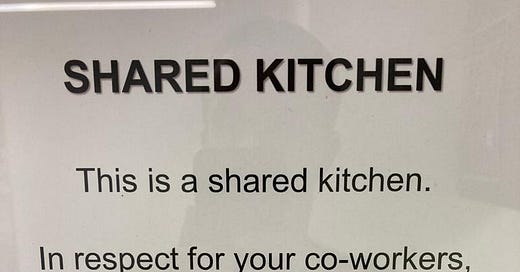They say that all roads lead to Rome. That may or may not be true, but I can assure you that the road to Rome from Sydney via Singapore and Copenhagen is certainly one of the longest. And having recently travelled it I set about rewarding myself on arrival by eating my way through the Four Pastas of Rome: Amatriciana, Cacio & Pepe, Alla Gricia and Carbonara. My first stop was at Hostaria da Corrado in the suburb of Trastevere to sample the Cacio & Pepe. As I drummed my fingers upon the wooden table top that the waiter had covered with a thin sheet of butcher’s paper, I noticed that the cook, an elderly chap with a moustache the colour of ash, had struck up a conversation with a group of four workmen who had wandered in, smiling and laughing, but always with one eye on the pan that contained the emulsifying mixture of cheese, water, and oil, waiting for the perfect temperature to bring it all together. There was no Gordon Ramsay like language, no pans being thrown, no belittled sous chef sobbing in the corner. The cook was a man at ease in time and space. Something was happening here, and I am pretty sure I know what it was.
I’ve only ever had to endure one performance review. I’m lucky like that. Three months into a new position I was invited to sit down with a senior manager. “Where do you see yourself going here?” I was asked. I knew that most of my colleagues at a similar level all hoped to progress up the ranks into middle management. But I didn’t. My role involved dealing with clients and I enjoyed the interaction with the different companies that we serviced. And I felt that I was good at it. A progression into middle management, managing the people who managed the clients would mean I would be no longer using my strengths and doing what I most enjoyed. Middle management would be endless meetings with other middle managers who wanted to be senior managers. A quote from Professor Steve Tadelis of the University of California’s business school came to mind: Tell me how close you are to administration so I know how far away to be from you.
So, I had a decision to make. Play “the game” and say that I saw myself progressing into the management ranks, or tell the truth and say that I was content to stay where I was, learn my role as well as I could, share my knowledge with colleagues, in short get good at my job. And that was what I did. I thought it went well, until I later heard that the Senior Manager I had sat down with had forgotten my name and was referring to me as “the one without leadership ambitions.”
There is a theory in organizational management called the Peter Principle. This theory posits that within organisation an employee will rise to the level of their own incompetence. In practice what this means is that someone who is good at their job will get promoted and will continue to do so until they reach a level where they are no good at their job and there the promotions will stop, and at that level they remain. The theory started as a satirical dig at the organizational management movement but quickly gained popularity and credibility.
While the idea appears sound, if you are good at what you do you rise up the ranks, the problems begin when employees who are creators or doers, are pushed up into management positions they are unqualified for. By way of an example, there is no reason why a good mechanic would make a good manager of other mechanics but this is what regularly happens in organisations. The outstanding salesperson becomes the manager of the sales team, based on nothing more than their ability to make sales.
Academics have proven that the Peter Principle isn’t just an amusing theory that we can throw around the office kitchen to belittle our bosses. It actually happens. What is more surprising is that the research found that companies know that it happens, know that they are promoting people into positions that they are unqualified to fill and still do it. And they do this because to not do so would disincentivize those at the level below. Rather than pay the good employees better, it is cheaper for the firm to promise promotion.
When people are promoted into positions they are unqualified for it is bad for everybody. Teams have to deal with the burden of an inept manager (we’ve all seen this, right?) But it is no picnic for the person promoted either. They’ve been wrenched away from the work that they were actually good at and placed in a role for which they have no experience, no training and possibly no aptitude. The best they can hope for is that maybe they’ll come to love endless meetings with other managers. Meantime, their workplace identity has flipped from 'accomplished and respected expert' to 'typical management who should just stay out of it if they really want to help'. They may even come to see themselves in that way. And that is the tragedy of the Peter Principle.
So why do we take these roles on? Because in most organisations (and society), progression is upwards, more money is upwards, more prestige is upwards. We look to promotion to move us up the chain, regardless of the cost to ourselves and those around us.
I want to propose something different. Let’s do away with the promotion and start to celebrate the No-motion. Celebrate the one who stays where they are, learns their role inside out, leads through the acquisition of knowledge and expertise. Let’s celebrate those who master a role, those who grow not upwards but expand outwardly to fill their roles. Let’s celebrate an ambition to learn rather than the ability to climb from one box on the organigram to the next. And let’s pay these people more.
Before leaving for Italy I spent a weekend in Bendigo at the Lost Trades Fair, a gathering of artisans who practice what are considered dying arts and trades. Think chair makers, instrument makers, hand woven lengths of rope, wooden bowls carved on lathes powered by the pumping of the artisan’s foot. Over a weekend, I spoke to a number of these women and men, and very few of them were at the fair to make sales. They were there to speak to other artisans, share their knowledge with colleagues and competitors alike, learn more about their craft. They weren’t focused on going up some fictitious chain of prestige, they were concerned with making better chairs, better bowls, stronger rope. They looked happy.
And while it may seem a long way from Bendigo to Rome, sitting in that pasta joint I thought about the artisans I had met, and I thought about that cook. Because he was part of a culinary tradition that had mastered an art, the art of turning two or three ingredients into something spectacular. That ability can only come from complete dedication to the task at hand, a dedication to the moment, to learning, to improvement. To getting good at your job. Prestige and respect came not from continual advancement, or a constant climbing of the pay scale, but from mastering an art. And I can’t help but think that a community made up of people dedicating their lives to getting better at whatever they choose to do rather than scrambling ahead seems like the kind of community I would like to live in.
If you enjoyed this post please leave a comment or hit the heart button. Doing so helps other people find it on Substack (and gives me a pleasant little dopamine hit). Thank you.


















Share this post